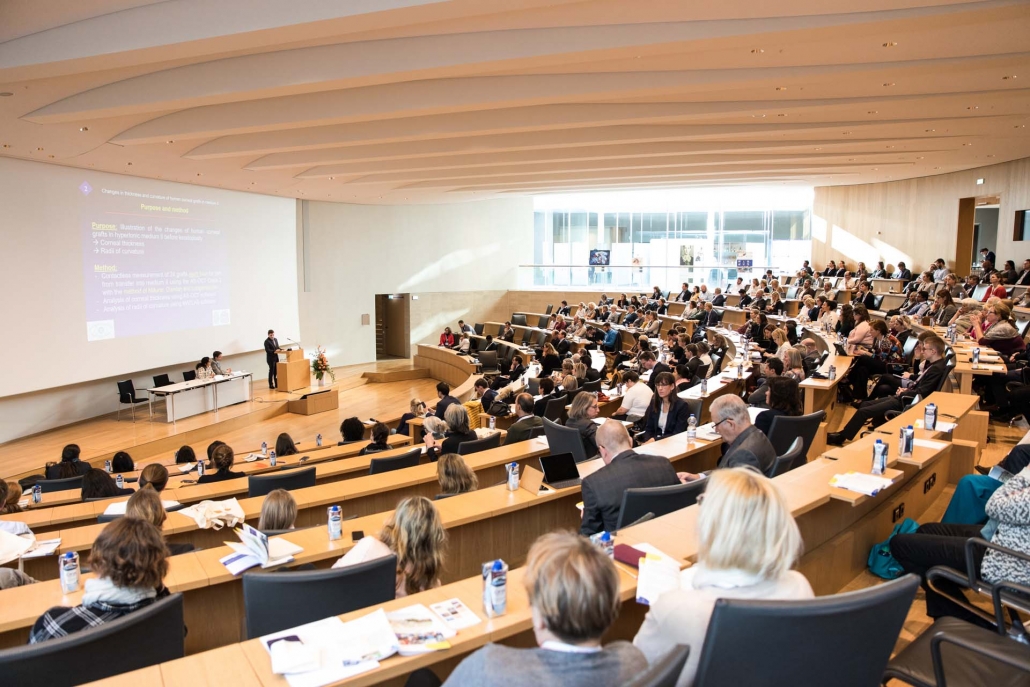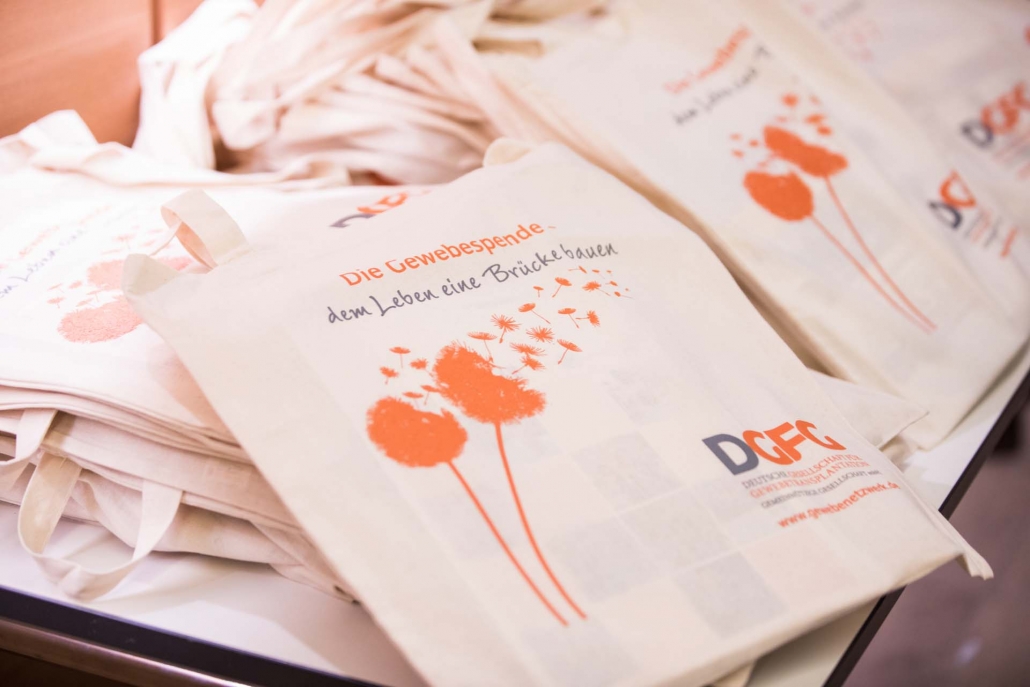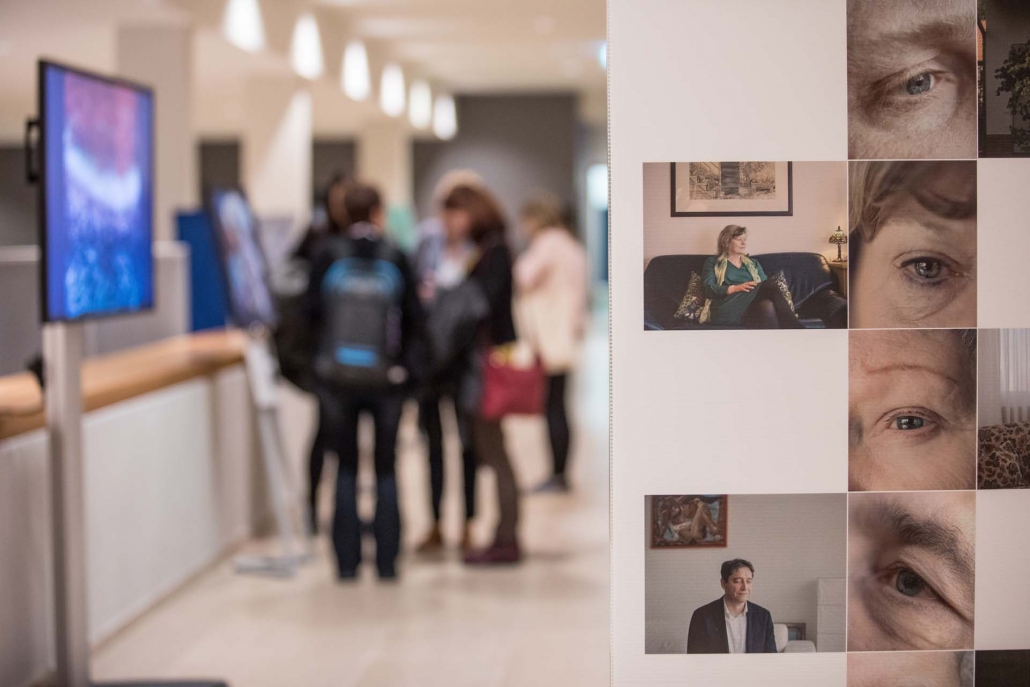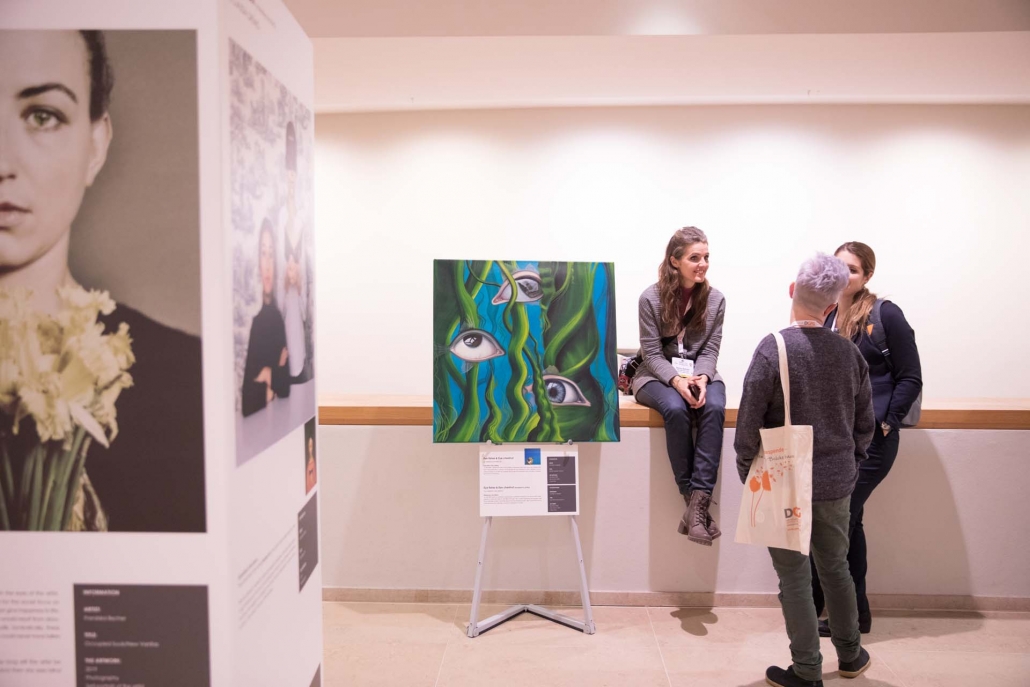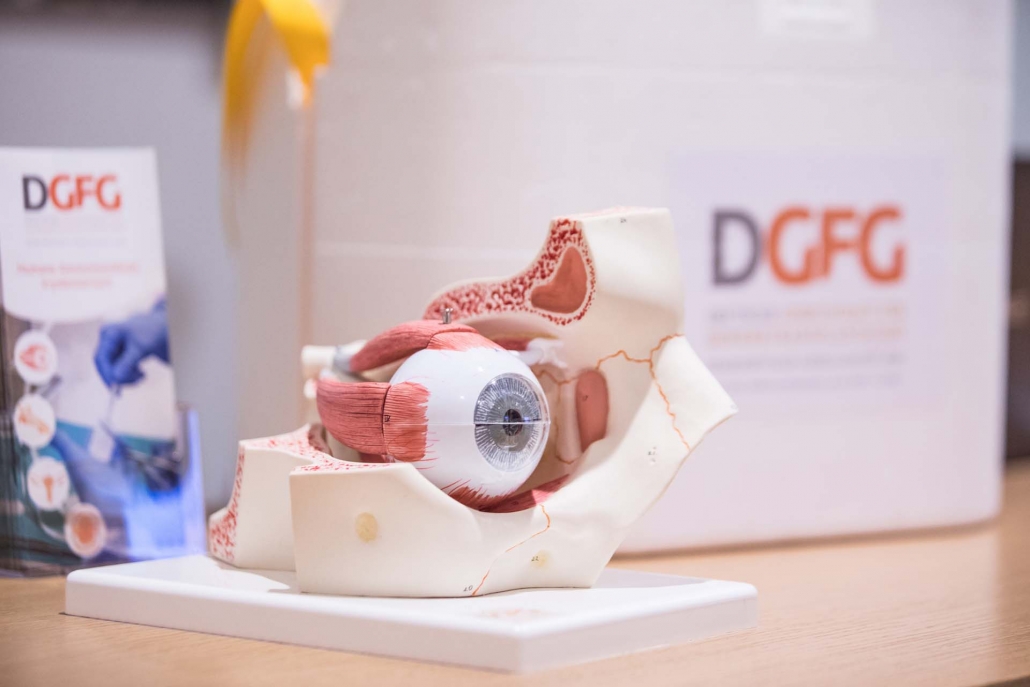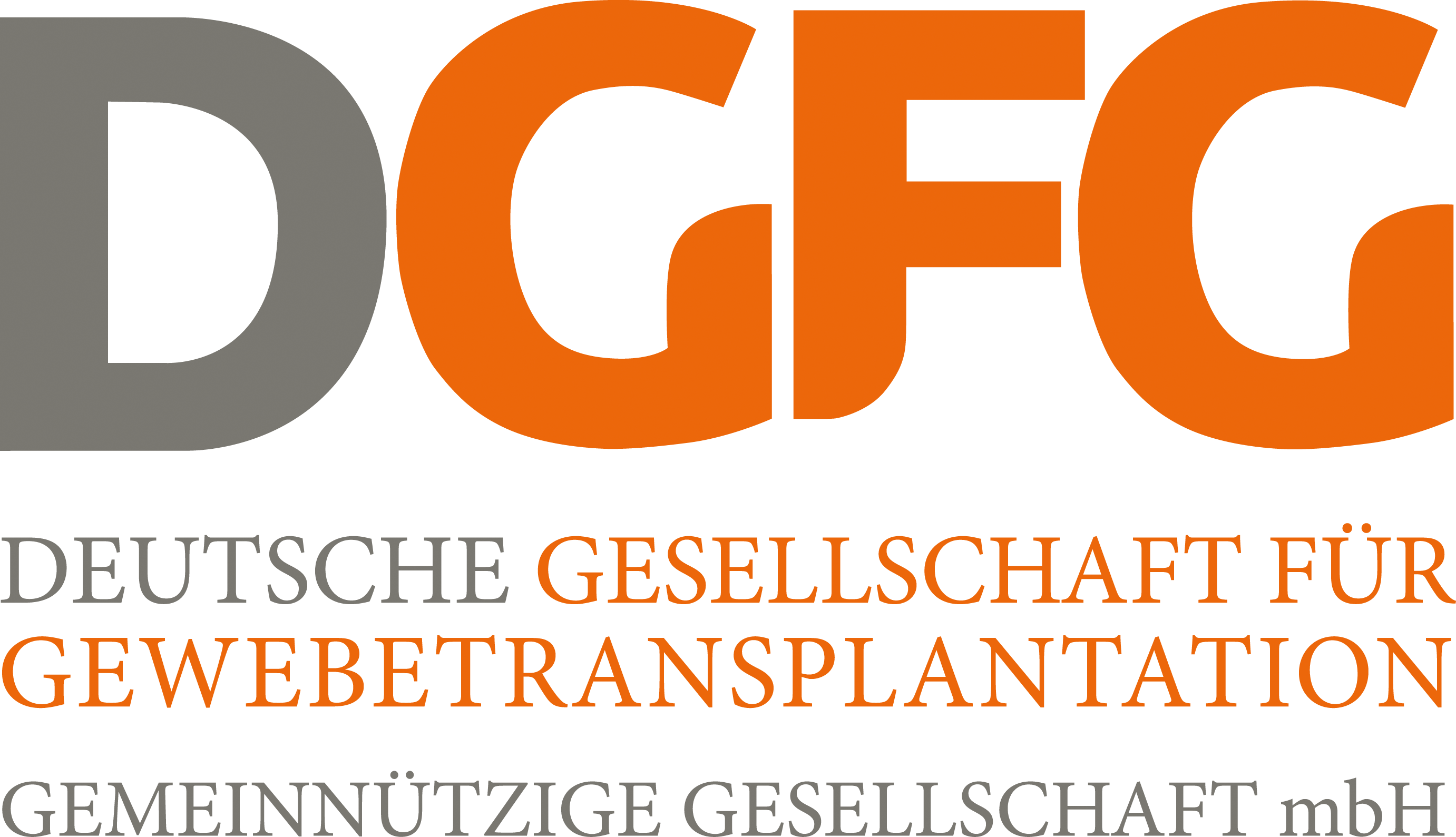Workshops, science and WHO initiative ensure record attendance at EEBA
More than 300 guests from all over the world came together at the XXXII Annual Meeting of the European Eye Bank Association (EEBA) in Hannover.
How can eye banks and tissue donation organisations contribute to preventing avoidable blindness?
This question was addressed by tissue bank employees, doctors and scientists from over 30 countries at this year’s annual conference of the EEBA, which took place from 16 to 18 January 2020 in Herrenhausen Palace in Hannover.
The focus topic of the event was based on the worldwide initiative VISION 2020, which had already been launched in 1999 by WHO (World Health Organisation) and IAPB (International Association for the Prevention of Blindness) to prevent avoidable blindness. This year, the German Society for Tissue Transplantation (DGFG) hosted the conference bringing together experts from the field of corneal medicine in different European cities every year. The choice of venue was not coincidental: The DGFG has had its headquarters in the capital of Lower Saxony since its foundation in 2007.
The cornea
The cornea is about half a millimeter thick and is our window to the world: It lets light into the eye and thus enables good vision. About 7,000 corneal transplants per year in Germany are the last chance for patients with irreversibly clouded corneas due to illness or injury to see clearly again. Such a transplant comes from the tissue donation of a deceased person, which the DGFG carries out from over 30 locations and at more than 100 donor hospitals nationwide.
About European Eye Bank Association (EEBA)
The EEBA was founded in 1989 with the aim of providing corneal banks with an information platform. Today, the association is the leading association in Europe with more than 80 corneal banks and clinical centres from more than 20 European countries and several countries outside Europe. Its mission is to contribute to ensuring that tissues and cells of optimal quality and safety for transplantation and the treatment of eye diseases are provided according to the highest medical and scientific standards and that they are available in an ethical and humanitarian manner to as many patients in need as possible, in accordance with the Helsinki Declaration and applicable national and international laws and regulations. (Annual Directory, 28th Edition)
16 January: Kick-off with extensive workshop and training programme
The event started with an extensive workshop and training programme.
In the evening, the conference was officially opened at the so-called Welcome Reception. Martin Börgel (managing director of the DGFG) and medical ethicist Professor Eckhard Nagel (Institute for Medical Management and Health Sciences of the University of Bayreuth) welcomed the guests. Professor Nagel also picked up on the latest decision in the German Bundestag and underlined the importance of this conference in order to exchange information about initiatives in the supply of corneal transplants beyond Europe.
A highlight on the programme of this first evening was the exhibition of the 18 submitted artworks for the Photo & Art Contest: For the first time, EEBA together with the DGFG organised a contest, which offered guests an insight into the world of corneal donation, preparation and transplantation and was intended to raise public awareness of the topic of “seeing” beyond the event. Both laymen and experts from tissue banks and member organisations of the EEBA creatively addressed this topic. Oil paintings, video slideshows, mobile, microscope images, photomontages and portraits – the artists’ perspectives are as varied as their submissions to the competition.
An international jury of six judges selected the winner of the main prize from the 18 entries. Members of the jury were: Marion Charlotte Renneberg (Medical Association of Lower Saxony), Rebecca Zimmering (Federal Center for Health Education/BZgA), Renate Kastrowsky-Kraft (Lions Governor District 111 Lower Saxony-Hannover), Simone Henzler (German Blind Relief Organisation), Aleksandra Jones (The Ophthalmologist) and Dr. Simone Hennerbichler (Austrian Red Cross)
“To be a part of Lions’ international commitment to eye health is why I’m here. I would like to inform myself about corneal donation and eye banks, which Lions also support in Germany,” says Renate Kastrowsky-Kraft, District 111 Governor of Lower Saxony/Hanover, describing her motivation to participate in the EEBA 2020 in Hannover. The district governor actively supported the conference as one of six jurors of the Photo & Art Contest.
“I find this contest very interesting. The art provides access to the topic and a discussion platform with very different people – not only experts”.
Workshop
Limbal stem cell transplantation
Experts from all over the world devoted a two-hour round table to the topic of limbal stem cell transplantation. Doctor Vikas Mittal, ophthalmologist from India, presented the SLET (Simple limbal epithelial transplantation) method and showed the possibilities that cell transplantation offers patients.
Wetlab
Techniques for Lamella Preparation
During the wetlab Techniques for Lamella Preparation, eye bank employees learned about the liquid bubble technique, a special preparation method for corneal lamellae, and tried out the method for themselves.
Wetlab
Workshop
Slit Lamp
Especially conspicuous features in donor corneas were examined more closely during the Slit Lamp Workshop. The workshop leaders gave the participants tips and tricks on how to use the slit lamp for diagnostics and quality control of corneas in the tissue bank.
Workshop
Cell Counting
The cell counting workshop dealt with various cell images of a cornea. The cell count is still considered the number one quality parameter for corneas. Therefore, correct counting and recognition of the cell structure is of great importance for the technicians in the eye banks.
Workshop
Workshop
Donor Consent
The Donor Consent Workshop focused on the challenges of next of kin interviews and the basic clarification of how obtaining donor consent works in different countries. While most countries in the EU have already established an opt-out solution, the extended consent solution (opt-in) is still in force in Germany, for which the majority of members of the German Bundestag voted again on the same day, January 16th. The participants discussed case studies and jointly considered possible solutions to master even difficult next of kin interviews.
Workshop
Donor Cases
In addition to the three technician workshops, tissue donation coordinators also had their money’s worth: Special medical donor cases were presented in the Donor Cases Workshop. In teams, the participants developed solutions and discussed them in a plenary session. Medical screening is always the beginning of every tissue donation and is also decisive for its success.
Workshop
Workshop
IT
In an IT Workshop, software solutions for tissue donation organisations and eye banks were discussed. Those data banking systems should efficiently bundle and structure the work and approval processes. In practice, such solutions save not only paper but also time.
Workshop
Fundraising and Promotion
In the Fundraising and Promotion Workshop, the participants looked at best practice examples of PR campaigns and charity activities and discussed do’s and don’ts in public relations and fundraising. For tissue donation organisations and eye banks, the financial resources for e.g. research projects are limited, which is why fundraising and sponsoring can be a suitable way of gaining financial resources.
Workshop

